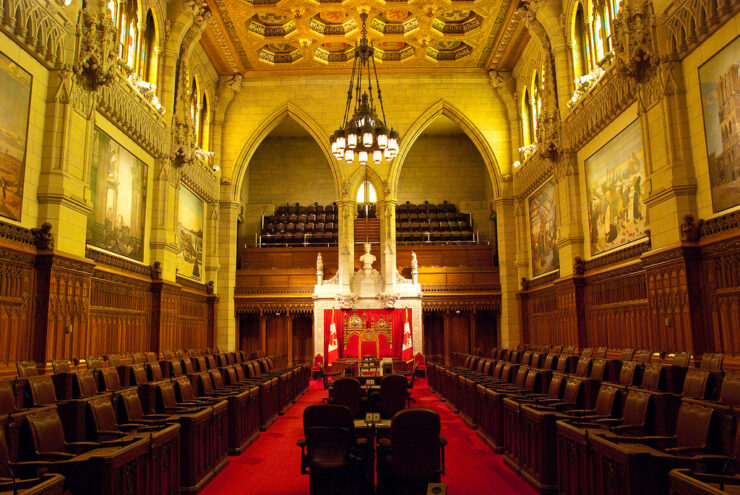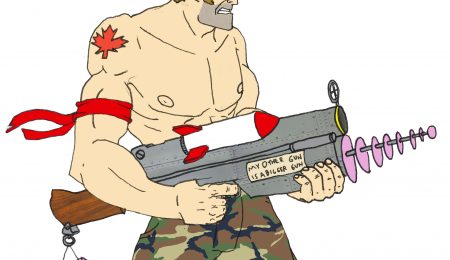Christopher Radojewski | Fulcrum Staff
Photo by Johnathan Nightingale
THERE ARE CALLS for reform or abolition as scandals plague the Senate. Reports of corruption have received massive media attention and, unsurprisingly, have captivated politicians. The Senate was the centre of debate in Question Period (QP) this week.
Although the scandals in the Senate seem to remove any good reputation left of Canadian politics, on May 28 there was a glimmer of hope in the House of Commons. An unusually civil and informing QP took place. Heckling was minimal as Members of Parliament (MPs) sought answers on the Senate.
Yet I jinxed it, as the ideal QP progressively worsened throughout the week. It became hypocritical, as bad behaviour was condemned in the Senate while MPs simultaneously misbehaved. Comparatively, more scandal has rocked the House than the Senate.
As the House of Commons debated the issue Tuesday through Thursday, its own honour disappeared. Tuesday’s functional and civil QP created an effective parliament. By Thursday, this ideal and imaginary world did not exist. Let’s recap.
On Tuesday, QP felt like a courtroom as the opposition interrogated Prime Minister Stephen Harper with questions about relations between Senator Mike Duffy and the Prime Minister’s former chief of staff, Nigel Wright.
Thomas Mulcair, Leader of the Opposition, cross-examined Harper for 25 minutes with the assistance of Liberal leader Justin Trudeau. Short and direct questions like “when was the topic of illegal Senate spending first raised in cabinet?” and “has the RCMP contacted the Prime Minister’s Office?” rapidly peppered the Prime Minister. Harper seemed unprepared as he struggled with the simple questions.
On Wednesday, Mulcair and Trudeau continued to ask easy but scrutinizing questions. This time Harper was ready with notes and confidence. However, MPs became progressively unruly as party leaders attacked each other. Harper criticized Mulcair’s accountability in matters of Quebec corruption and Trudeau’s lack of discipline on Liberal senate corruption. Questions and answers became personal attacks and talking points.
With no political leaders present on Thursday, opposition critics launched questions at Minister of Canadian Heritage James Moore. His talking points were coupled with government heckling to drown out the opposition’s questions. An uninterested opposition ignored his answers with laughter and internal chatter. MPs were not kept in line.
What happened to the perfect Question Period? According to Chief Government Whip Gordon O’Connor, it wasn’t so perfect because opposition questions were attacks, not inquiries.
“When parties come under attack, they attack back,” said O’Connor. “Those quiet questions are attacking us.”
He believed the heckling was justified as an appropriate frustration with the opposition.
Liberal opposition critic Ralph Goodale thought otherwise. He believed the questions were “in substance the same [reasonable] questions that were asked Monday and particularly on Tuesday.” He said the government got caught on Tuesday and then became defensive.
“You can tell that [heckling] got hyped up yesterday, particularly following the weekly caucus meeting,” said Goodale. “The cheerleaders were told no matter what is said by anybody, yell.”
Coincidentally, O’Connor and Goodale both believe this to be a cycle. The decorum moves betweens hills and valleys and O’Connor said, “We’re in a hill at the moment.”
But periods of civility rarely last, and many MPs are not ideal role models. QP is not the only function of an MP, but it’s what the public sees and what Goodale called “a turnoff.” It’s naïve to think the House of Commons is corruption-free when the Prime Minister’s Office is connected to the scandal. So how is an MP preferable to a senator?
This week, MPs talked tough on political responsibility and the need for reform. I agree wholeheartedly. Let’s start in the House of Commons, because if we’re getting rid of the Senate, we better make sure at least one chamber can function well.
@ChrisRadojewski



